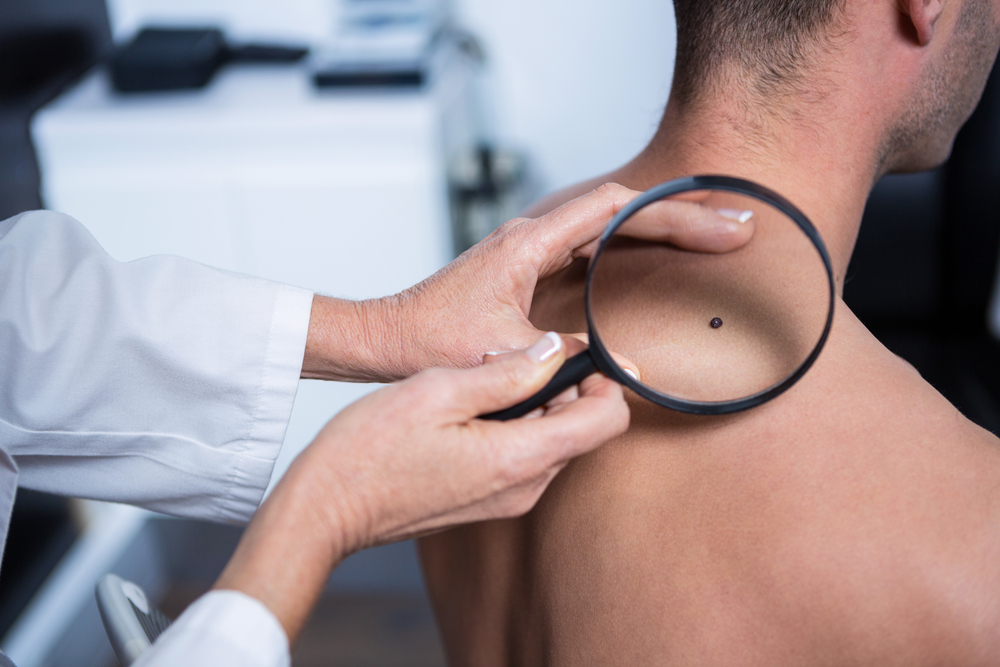
Skin cancer is far more common than many people imagine. In fact, it is the most common type of cancer in the U.S. and affects nearly five million Americans per year.
The good news is that skin cancer is often treatable when diagnosed early through self-exams and annual skin cancer screenings.
Here’s everything you need to know about skin cancer signs, symptoms, diagnosis, and treatment.
The Most Common Types of Skin Cancer
Basal cell carcinoma (BCC) and squamous cell carcinoma are the two most common forms of skin cancer. They are named after the cells in which they originate and typically present on sun-exposed areas like the face, ears, chest, hands and neck.
However, BCC and SCC can also occur elsewhere and may appear as:
- Scaly patches
- Red spots or red bumps that won’t disappear
- Flesh-hued bump
- Open sore that does not heal
- Hard red bump with scaling or crusting
- Pimple that does not heal
Melanoma is another form of skin cancer that is rarer than BCC and SCC, but deadlier. It typically presents as an atypical mole characterized by asymmetry, irregular borders, uneven color, diameter larger than a pencil eraser, and evolving appearance.
Early Detection Through Skin Cancer Screenings
An annual skin cancer screening is one of the most effective ways to detect skin cancer in its earliest stages and improve your prognosis. In fact, when caught and treated early, skin cancer is usually curable.
That’s why it’s essential to make time to see your dermatologist each year for a head-to-toe visual inspection with the assistance of dermoscopy and possibly high-resolution photography.
Skin Cancer Biopsy and Removal
If a suspicious lesion is noted during your skin cancer screening, it will be biopsied and sent to the lab for further analysis. If pathology finds the growth to be cancerous, your dermatologist will discuss treatment and removal options, which may include Mohs micrographic surgery.
Schedule a Skin Cancer Screening Today
If you are concerned about any new, suspicious, or changing lesions, please call our office today to schedule a skin cancer screening with board-certified dermatologist Dr. Marjan Yousefi.
